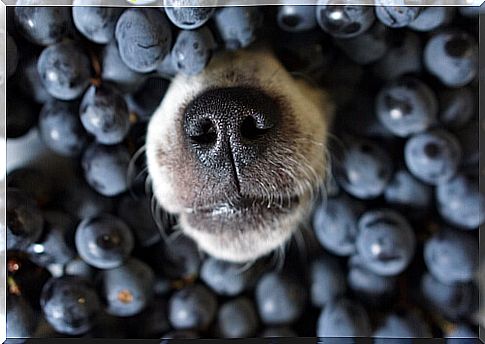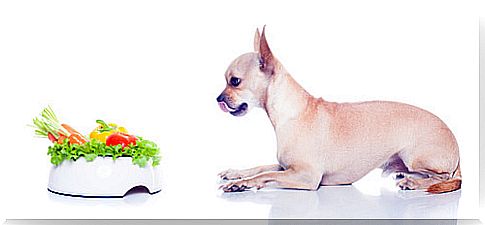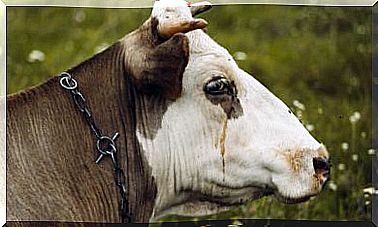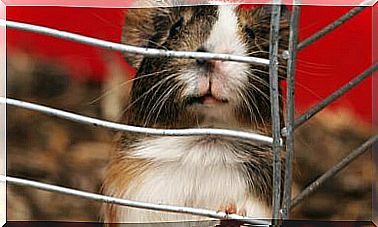Vegetarian Diets For Dogs: 7 Steps To Follow

Vegetarian diets for dogs are a trend that continues to grow. This wave of change is due to pet owners concerned about the well-being of farm animal species. This without discounting, of course, the harmful environmental impact that derives from animal production.
Are vegetarian diets for dogs nutritious and safe?
To be sure, many objections to this type of diet arise. However, there are not many formal studies that determine critical parameters.
For example, it has not been established whether vegetarian dogs are more, less or equally healthy than those fed meat. Currently, there are some studies that have indicated nutritional deficiencies in vegetarian canine diets.
However, there is, in theory at least, no reason why vegetarian diets cannot meet canine palatability, bioavailability, and nutritional requirements. In fact, a growing number of commercially available diets aim to do so.
Although there are no rigorous scientific studies that establish the effect of vegetarian diets for dogs, there are documented experiences on the benefit of this regimen. Thus, such diets have been associated with benefits such as better coat condition, allergy control, weight control, increased health and overall vitality.
There are also benefits such as regression of arthritis and diabetes, resolution of cataracts, and decreased incidence of cancer, infections, hypothyroidism, and ectoparasites (fleas, ticks, lice, and mites).

How could you, from the diet, maximize the health of your dog? Importantly, vegetarian dog diets, unless nutritionally complete and reasonably balanced, will increase the risk of malnutrition. This part can be complex and requires expert advice. Here are seven factors to consider:
1. Take into account the stage of your pet’s life
Success in establishing a balanced diet starts from considering the specific needs of each stage of life. The nutritional requirement is different between young, adult, pregnant, lactating and older animals.
2. Maintain a criteria for providing specific nutrients and not specific ingredients
It is essential to pay special attention to ensuring adequate levels at each stage of development, of certain nutrients such as proteins, specific amino acids, vitamins and minerals.
3. Do not lose sight of your vegetarian diet options for dogs
Adopting commercially available vegetarian foods – as a complete diet – is the choice of many dog owners. However, it is not the only option, since it is also possible to implement only homemade diets or a combination of both.
4. Consider incorporating carnitine supplements
Carnitine is a nutrient found primarily in red meat. Large and giant breeds are known to be at risk for dilated cardiomyopathy, a life-threatening disease.

It is also known that a small percentage of these dogs lack sufficient cardiac l-carnitine, which can predispose them to this disease. Therefore, owners of animals at risk – who adopt a vegetarian diet – should consider adequate and timely supplementation.
5. Think of the best supplements
In dogs, stimulating the sense of smell is very important, so the addition of odorant is recommended. Also, other tasty additives are recommended, such as nutritional yeast, vegetable oil, nori flakes, and spirulina.
6. Exercise constant monitoring
To avoid any risk of malnutrition, owners should monitor their dogs’ health on a regular basis, including through regular checks on body weight, activity level, and behavior.
7. Check the acidity level of the urine
For animals on vegetarian diets, the urine test is an additional factor that deserves consideration. In carnivores, the metabolism of animal proteins results in the production of acidic urine.
In the case of a vegetarian diet, plant proteins have less acidifying amino acids and, therefore, the urine becomes much less acidic.
Alterations in acidity predispose the crystallization of certain urinary salts, which can result in the formation of stones in the urinary system: partial or complete urinary obstruction. Alterations in the bacterial flora can also occur, with an increased possibility of urinary infections.









